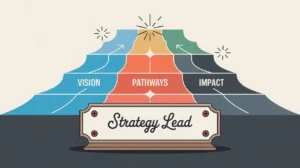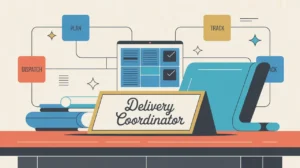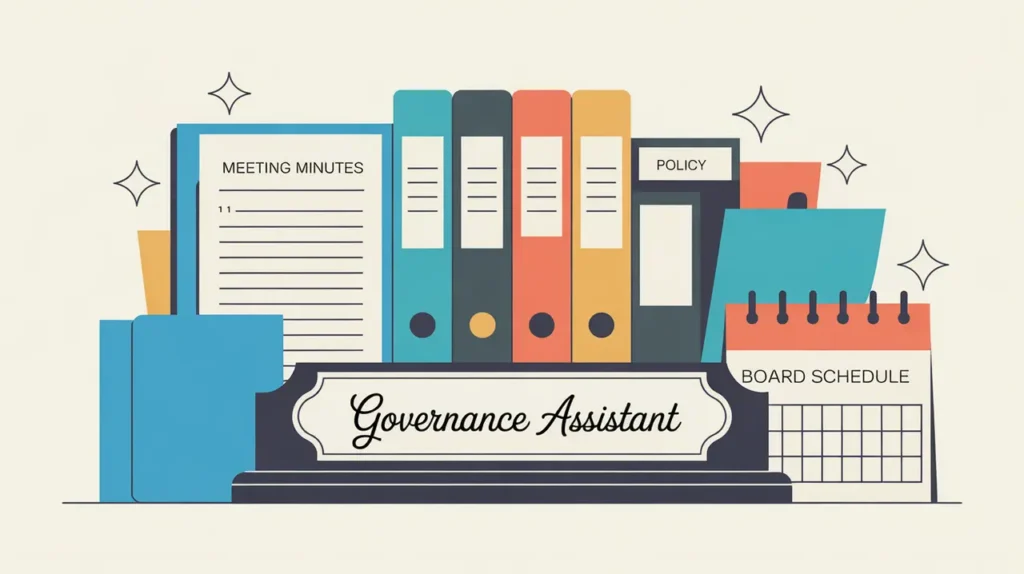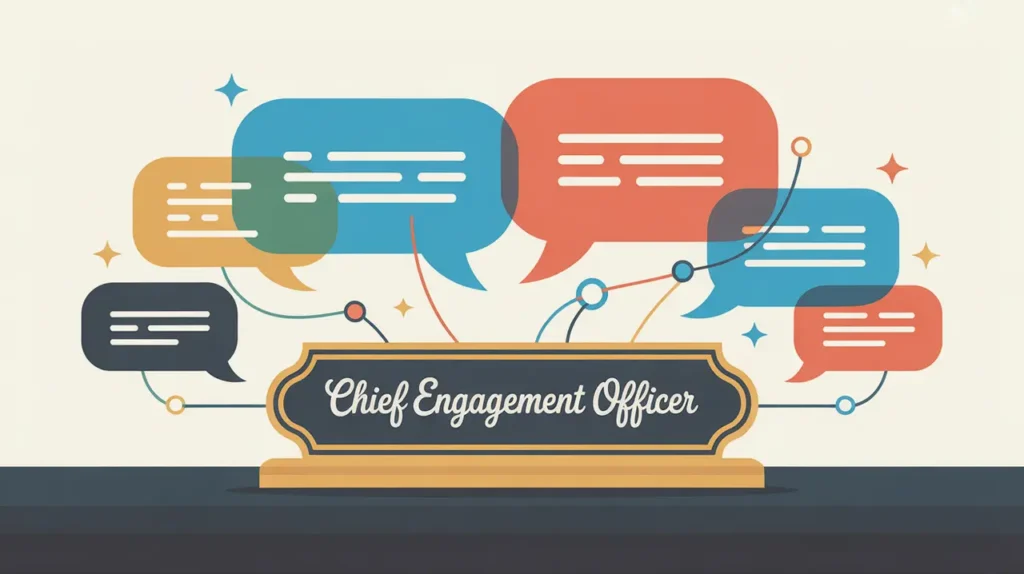What Does the Director of Governance Role Involve?
A director of governance is responsible for ensuring that the organization’s governance structures, policies, and practices are strong, transparent, and aligned with legal and ethical standards. This involves supporting board operations, developing governance frameworks, ensuring compliance with bylaws and regulations, managing governance documentation, and facilitating effective decision making at the board and leadership levels. The role typically sits within the executive or legal function and works closely with the chief executive officer, board leadership, legal counsel, and compliance teams. In both nonprofits and social enterprises, directors of governance play a critical role in safeguarding accountability, strengthening institutional integrity, and enabling effective leadership oversight.
At What Level does this Role Operate?
Executive Level: This role typically reports to the chief executive officer, general counsel, or board committees. It involves shaping governance strategy, managing governance systems, liaising with board members, and advising leadership on compliance and governance matters.
Relative Employability: Director of governance roles are steadily in demand across nonprofits, social enterprises, philanthropic organizations, and international NGOs. As governance expectations become more rigorous and boards take on increasingly strategic roles, organizations require experienced leaders to ensure governance practices meet evolving standards.
Relative Pay Scale: Within nonprofits and social enterprises, director of governance roles sit in the executive pay bands, reflecting their strategic advisory responsibilities, oversight functions, and close involvement with board leadership.
What are the Key Responsibilities and Activities?
- Develop and oversee governance frameworks, policies, and procedures that ensure compliance with legal, regulatory, and ethical standards
- Manage board operations, including meeting scheduling, documentation, minutes, and follow-ups
- Support board recruitment, onboarding, and development processes to strengthen governance capacity
- Advise executive leadership and board committees on governance best practices and compliance obligations
- Ensure organizational bylaws and governing documents are up to date and effectively implemented
- Facilitate clear communication and decision-making processes between leadership and the board
- Oversee governance reporting and documentation to ensure transparency and accountability
- Monitor governance trends, regulations, and emerging standards to inform organizational policies
- Build and maintain strong relationships with board members, legal advisors, and regulatory bodies
What Core Competencies and Qualifications are Needed?
Required Qualifications and Experience
The following reflect common qualifications and experience expected for this role, while recognizing that pathways may vary by context, organization, and region.
- Relevant academic background in law, public administration, governance, business administration, or a related field, or equivalent professional experience
- Extensive experience in governance, legal, compliance, or executive leadership roles
- Strong knowledge of nonprofit or social enterprise governance frameworks, legal contexts, and regulatory environments
- Proven ability to work with boards and executive leadership on strategic and operational governance matters
- Excellent organizational, advisory, and communication skills
Key Competencies
- Governance framework development and implementation
- Legal and regulatory compliance oversight
- Board relations and operations management
- Strategic advisory and communication with leadership
- Policy analysis and governance trend monitoring
- Documentation and decision-making facilitation
How are AI and Automation Shaping this Role?
An AI-native director of governance will look to AI and automation to enhance documentation, compliance tracking, and strategic decision support. They can use AI tools to maintain governance records, analyze regulatory updates, prepare meeting summaries, and track board resolutions. Automation can streamline scheduling, document distribution, and compliance workflows, allowing governance leaders to focus on strategy, board development, and advisory functions. By integrating AI thoughtfully, directors of governance can improve efficiency, transparency, and responsiveness in governance operations.
What Career Pathways and Transferable Skills are Associated with this Role?
Director of governance roles can lead to positions such as general counsel, chief operating officer, or other senior executive leadership roles. The skills developed in governance strategy, legal compliance, board relations, and institutional advisory are highly transferable across nonprofits, social enterprises, philanthropic institutions, government, and regulated industries. This role provides a strong foundation for shaping organizational integrity, accountability, and leadership effectiveness at the highest levels.







